Losing control of Africa.
Colonisers, open wounds and the rise of the alternative. Coup in Niger or the beginning of a new normal in Africa? China, Russia and Turkey.
The Philoinvestor referral program has been launched. Start referring your friends and get complimentary subscriptions now. If you are not even subscribed, click here.
See what others had to say about Philoinvestor here and access research pieces that were previously paywalled.
If you can’t pay for a Philoinvestor subscription and help the newsletter grow that way — you can help Philoinvestor grow with the referral program.
Previous Philoinvestor thematic pieces.
Global effects from the Russo-Ukrainian war
Abstract First to be clear, my objective is not to talk about the non-financial aspects of this conflict/war/invasion, you can call it whatever you like. My aim is to think about the global macroeconomic and financial ramifications of what is happening.
Realpolitik > Justpolitik!
After the Russian invasion into Ukraine and the subsequent EU sanctions on Russia — energy security is getting worse. Dutch TTF (A benchmark for European gas) is currently at 250 Euros/MWh, from slightly above 70 Euros/MWh before the invasion of late February.
WTHIH? EU politics and the future of NATO.
Well, its been a while, and the most bearish expectations have been proven seriously wrong. Bears are jumping ship one by one and changing tune and looking for reasons to go long. That could be a problem for them down the line. We touched upon the trap of conflating every macro setup with how the stock market will do
Africa has had colonisers since the ancient times but modern reference to the colonies of Africa refers to the colonies of Britain, France, Germany, Portugal, Spain and Italy. 🇬🇧 🇫🇷 🇩🇪 🇵🇹 🇪🇸 🇮🇹
Colonial influence has been so strong that the main languages spoken today in Africa are those of the conqueror. North Africa mostly speaks Arabic, with some North African countries speaking both Arabic and French.
The GDP of Africa today is just above $3 trillion, 20% less than the state of California. California has 40mln inhabitants while Africa has 1.2 billion.
Clearly California has had more investment in productive capital, a more benign environment for business growth, the technology sector and perfect tailwinds.
But Africa is resource rich, strategically positioned for trade and investment and has had the “cultural, economic and political” influences of the European colonisers for centuries. Therefore shouldn’t Africa have been wealthier? More peaceful? More safe at least? But it isn’t.
“By 1875, the French conquest was complete. The war had killed approximately 825,000 indigenous Algerians since 1830. A long shadow of genocidal hatred persisted, provoking a French author to protest in 1882 that in Algeria, "we hear it repeated every day that we must expel the native and, if necessary, destroy him." As a French statistical journal urged five years late, "the system of extermination must give way to a policy of penetration."
—Ben Kiernan, Blood and Soil
Couldn’t these developed European nations have done something to help Africa grow out of its poverty and pain? Well we see that this was not their intention or incentive.
Their (economic) incentives were to enslave the African nations, pillage their resources and grow their home countries on their backs. As the decades passed and the costs to keep Africa under their control increased, colonisers were forced to slowly retreat. Seminal moments include de Gaulle’s “Je vous ai compris” speech at the time the Algerians were fighting for their self-determination in 1958. Algeria was a French colony since 1830.
European powers started to slowly retreat from Africa, as the costs of colonisation increased and the economic returns reduced. However the indirect control aspect remained, as private interests in Africa (i.e. European owned companies) continued to control.
In recent years Europe has left a vacuum in Africa for other motivated suitors to fill. At the moment China, Russia and Turkey are the biggest players.
Before the 1500s, when the Portuguese arrived in Africa — the area was dominated by Arab & Indian traders. The African tribes exchanged gold, ivory and even slaves for textiles and weapons.
Later on the Portuguese arrived — followed by the remaining European conquerors. However, these European colonialists focused on the coasts of Africa leaving the interior undiscovered. Later on with the discovery of quinine as a defence from diseases like the deadly malaria, the opportunity to move internally arises and the competing European powers started to make expeditions.
That’s when Africa started to be divided into colonies — the boundaries that were drawn had no bottom-up rationality, simply top-down considerations of the colonialists regarding their interests.
“Although atrocities occurred in the course of colonisation, it must be noted, to the credit of the colonial powers, that they put massive efforts into introducing working administrative systems and the rule of law. They established infrastructure, including roads, railways and manufacturing, and took responsibility for education, both primary and secondary. They improved health systems, leading a large increase in native populations. Due to colonialism, Africa had a stable political structure from the late 19th century to the 1950s, though it has become a sphere of the relevant European powers.”
From “Africa and foreign influence” by Prince Michael of Liechtenstein
Decolonisation
The decolonisation of Africa took place from 1950 to 1975, leaving behind the systems and ideals of the coloniser as a model of governance and control. But the states that were left behind were not developed in an organic and sustainable manner — rather they were inorganic and artificial, with borders drawn by the colonial powers.
And what was the result?
These states failed and spiralled into corruption, civil war, armed revolution, looting, mafia-state type governance and all the consequences that come with it. Since then nothing has been done to help Africa sustainably and with enough resolve. In fact, I argue in this essay that no one is actually trying to help Africa but only extract value from the continent while leaving it more impoverished.
Proclamations about democracy, humanitarian aid and investment are hypocritical and self-serving. Foreign powers intervening in Africa don’t want what’s best for Africa — they want what is best for them and their interests. They don’t support or contest African leaders on merit, but rather on whether the leader works for them or against them. No need to go too far, the example of Libya and Qaddafi is instructive.
Let’s start with some historical context…
Qaddafi ruled Libya for 42 years until a rebel uprising which was then supported by NATO achieved to topple him and resulted in him being murdered in the streets. Who backed these rebels? How were foreign powers legitimised in intervening? How many double standards?…
But why was Qaddafi toppled?
Qaddafi was very vocal about a union of African countries and funded other African nations that weren’t wealthy like Libya, to engage in development and initiatives. Libya was wealthy because of oil production — allowing Qaddafi to have a material influence all over Africa. His proclamations are all over the internet and not hard to find.
It seems the West did not want a strong and united Africa…
Conflicting Interests
It’s obvious that the West does not want a united Africa — rather they want to be able to exert uncontested influence in Africa and benefit from it. This is why he was taken down, to stop the momentum and to set an example to anyone else with the same ideals.
Their excuse was that Qaddafi was a menace to his people and they were suffering under his rule. They go on to “explain” that it was natural that he was toppled, because they wanted a better life… 👇👇👇
So……What happened after Qaddafi was murdered? 🙄
The Libyan Crisis is the current humanitarian crisis and political-military instability occurring in Libya, beginning with the Arab Spring protests of 2011, which led to a civil war, foreign military intervention, and the ousting and death of Muammar Gaddafi. The civil war's aftermath and proliferation of armed groups led to violence and instability across the country, which erupted into renewed civil war in 2014. The crisis in Libya has resulted in tens of thousands of casualties since the onset of violence in early 2011. During both civil wars, the output of Libya's economically crucial oil industry collapsed to a small fraction of its usual level, with most facilities blockaded or damaged by rival groups, despite having the largest oil reserves of any African country. On October 23, 2020, parties signed a permanent ceasefire.
This is what Wikipedia has to say about Libya post-Qaddafi… How about that future?
A few quick and dirty observations: 1) All democratically-elected countries with a dynamic public opinion, that invade another sovereign territory need a pretext for it. 2) There’s always some oil involved.
Do the Libyan people have a future now? Do they have hope? What about in not so far away Iraq? Do the Iraqis today have hope after the toppling of Saddam because he supposedly hid WMD?
George W. Bush here says (admits) that the weapons of mass destruction never existed in the first place.
So the result is intervention into Libya made it worse, not better off. Their aim was to stop in its tracks an African momentum to become stronger and to kill their will for self-determination.
Post-colonial strategies to divide and rule. Check ✅
Europe flourishes but Africa fails
The EC (European Commission) issued in early 2022 a report on their “comprehensive strategy with Africa” and laid out the verticals in which the EU plans to co-operate with the mother continent… 🤦🏻♂️
What they forget to assess, analyse or even mention is that Europe had a foothold in Africa for centuries and benefited tremendously from looting its resources and enslaving its people — and conveniently left death and destruction behind.
To strengthen the EU’s strategic alliance with Africa, the EC and the High Rep of the Union are proposing to engage discussions with African partners in view of jointly defining at the upcoming EU-AU summit a new comprehensive EU strategy with Africa that could be build on five partnerships:
A partnership for green transition and energy access;
A partnership for digital transformation;
A partnership for sustainable growth and jobs;
A partnership for peace and governance; and
A partnership on migration and mobility.
This is how the EU revises their aims with this proposed EU - Africa co-operation. The EU is focusing on 10 actions as regards Africa initiatives.
To sum up, it is proposed that the EU partners with Africa on the following 10 actions:
maximise the benefits of the green transition and minimise threats to the environment in full compliance with the Paris Agreement;
boost the continent’s digital transformation;
substantially increase environmentally, socially and financially sustainable investments that are resilient to the impacts of climate change; promote investment opportunities by scaling up the use of innovative financing mechanisms; and boost regional and continental economic integration, particularly through the African Continental Free Trade Agreement;
attract investors by supporting African states in adopting policies and regulatory reforms that improve the business environment and investment climate, including a level-playing field for business;
rapidly enhance learning, knowledge and skills, research and innovation capacities, particularly for women and youth, protecting and improving social rights, and eradicating child labour;
adapt and deepen EU support to African peace efforts through a more structured and strategic form of cooperation, with a particular focus on regions where vulnerabilities are the highest;
integrating good governance, democracy, human rights, the rule of law and gender equality in action and cooperation;
secure resilience by linking humanitarian, development, peace and security interventions at all stages of the cycle of conflicts and crises;
ensure balanced, coherent and comprehensive partnerships on migration and mobility;
strengthen the international rules-based order and the multilateral system, with the United Nations at its core.
🙄 At the moment the EU can’t even do these things in their own member-states — so let’s dig deeper into the history of European control Africa even post-Independence.
The CFA Franc.
A tool of monetary imperialism & neo-colonialism
CFA is the acronym for Communauté Financière Africaine (African Financial Community). The CFA Franc refers to two distinct currencies, both used by countries of West Africa. Consider them as the same currency as they have the same characteristics.
The CFA Franc was created in December 1945, post-Bretton Woods agreement, to protect the African colonies from the devaluation of the franc. The French FinMin at the time said this to explain the birth of the CFA Franc.
“In a show of her generosity and selflessness, metropolitan France, wishing not to impose on her faraway daughters the consequences of her own poverty, is setting different exchanges for their currency.”
In 1958 the CFA Franc became the FCFA (Franc of the French Community of Africa) after de Gaulle introduced the concept of “community” as regards the African colonies of France.
Since the birth of the CFA Franc, the following countries managed to successfully leave the CFA Franc region and venture out on their own.
Tunisia in 1958
Guinea in 1959
Morocco in 1960
Algeria in 1964
Madagascar and Mauritania in 1973
But funnily enough, in 1994 France imposed a 50% devaluation on the CFA vis-à-vis the French franc seemingly out of nowhere. Attempts to achieve an “internal devaluation” of the countries in the CFA Franc zone failed repeatedly, and so the currency devaluation seemed obvious for France.
For those that don’t get it — this means depositors in CFA Franc are immediately 50% poorer. Still, pro-CFA Franc advocates argue that the CFA exists to benefit the African countries and not France. Evidence shows otherwise.
“Proponents of the CFA Franc would argue that the currency brings stability to the region. But so far, the region has not prospered, and the single currency between 14 countries did not translate into great exchanges between them.”
It’s simple - the CFA Franc restricts options for its African members, kills alternatives and price-setting capabilities, turns Africa into the squeezed counterpart in any transaction and gives control to France. This is why they were so adamant to keep it!
What the f*ck, France?
However, it hasn’t been so easy to achieve monetary self-determination in Africa.
France has fought against this initiative aggressively and violently. In 1962, the President of Mali created the Malian Franc which resulted in his neighbouring raising commercial barriers and isolate Mali completely. I wonder who pushed for that? Why so much hate and disdain for their African counterparts seeking self-determination?
A year later in 1963, the President of freshly-independent Togo was planning an independent monetary project (i.e. a Central Bank of Togo and a Togolese Franc) until he was murdered by a group of militants that were trained by France.
In 1960, when then-Guinean nationalist leader Ahmed Sekou Touré left the CFA franc system, Paris launched Opération Persil (or “Operation Parsley”). French intelligence operatives sought to destabilize the country and topple Touré by flooding Guinea with massive quantities of counterfeit new Guinean bank notes. This led to the Guinean economy’s collapse and fueled Touré’s Stalinist paranoia, which arguably led to incessant brutal purges during the following 24 years of his rule.
Why is the CFA so important for France?
I quote Yasser Louati from his article on the CFA.
But for France, there are only advantages. The former colonial power maintains its grip on the economies of these countries, when the latter enjoy trade surplus, their foreign currency reserves are stored in French banks which can then use them on international financial markets, French companies have preferred access to local markets, can exploit, extract resources, can freely repatriate their profits back home without fear of foreign exchange fluctuations and even setup shop wherever and whenever throughout the CFA Franc area.
Under these conditions, the natural question is how sovereign can a nation be without monetary sovereignty?
Italian PM Georgia Meloni took a stab at Macron and France on this subject before she was elected — and it’s worthy of your time.
While the exact economics of the CFA and its higher-level consequences are hard to pin down, the point is that France exercises post-colonial influence on these countries in many ways including that of depriving them of their monetary independence. No need to discuss the microdetails.
In fact, France achieves the economic aims of colonisation without the need for direct intervention and a permanent full-on army in Africa to achieve it.
Philoinvestor has argued that the American Empire is benefiting from a very similar relationship, where the US Dollar is the reserve currency of the world and the USA skims value off the top every year (i.e. inflation) to balance its budget etc.
The increasing pushback for Independence!
The below is a scene from one of my favourite series Au Service de La France. It may be a comedy but observe the deceit and arrogance of the French agent — he suggests that whatever Africa has, France gave her.. Some would argue that it’s the opposite.
France is still trying to hold on to their African colonies, one way or another — but at the same time understands that things must change.
Africa needs and wants monetary self-determination, but France and Europe does not care. As cries to cancel the CFA Franc increase, Macron starts talking about the “Eco”. Something similar to the CFA Franc, but with enough alterations to give Africans the idea that change has been brought.
What the f*ck, Belgium?
Congo attained its independence in 1960. Patrice Lumumba was the first PM of the DRC (Democratic Republic of Congo) — a pan-Africanist in his political convictions, he was a danger to the West, in their eyes.
Immediately after he took over as leader, Western forces frustrated his government and toppled him. Lumumba appealed to the US and the UN for help to suppress a secessionist group backed by Belgium but Belgium convinced the US and UN that he was a communist, anti-white and anti-western.
Ultimately, Lumumba was captured by the military opposition and murdered. He was 36 years old. The Belgians ultimately admitted they themselves planned his assassination 👇
from: https://en.wikipedia.org/wiki/Patrice_Lumumba
In February 2002, the Belgian government formally apologised to the Congolese people, and admitted to a "moral responsibility" and "an irrefutable portion of responsibility in the events that led to the death of Lumumba".
Lumumba's execution was carried out by a firing squad led by Belgian mercenary Julien Gat; Katangan Police Commissioner Verscheure, who was Belgian, had overall command of the execution site. The separatist Katangan regime was heavily supported by the Belgian mining conglomerate Union Minière du Haut-Katanga.
In the early 21st century, writer Ludo De Witte found documents challenging the idea that Belgian officers operating in Katanga, only took orders from the Katangan authorities. Belgian officers were also following Belgian government policy and orders. The Belgian Minister of African Affairs Count Harold d'Aspremont Lynden, who had been tasked with organising Katanga's secession, on 6 October 1960, sent a cable to Katanga saying that policy from now on would be the "definitive elimination of Patrice Lumumba". Lynden had also insisted on 15 January 1961, that an imprisoned Lumumba should be sent to Katanga, which essentially would have been a death sentence.
Leopold II of Belgium - Death and Destruction
from: https://en.wikipedia.org/wiki/Leopold_II_of_Belgium
Leopold was the founder and sole owner of the Congo Free State, a private project undertaken on his own behalf as a personal union with Belgium. He used Henry Morton Stanley to help him lay claim to the Congo, the present-day Democratic Republic of the Congo. At the Berlin Conference of 1884–1885, the colonial nations of Europe authorised his claim and committed the Congo Free State to him. Leopold ran the Congo by using the mercenary Force Publique for his personal gain. He extracted a fortune from the territory, initially by the collection of ivory and, after a rise in the price of natural rubber in the 1890s, by forced labour from the native population to harvest and process rubber.
Leopold's administration of the Congo Free State was characterized by atrocities and systematic brutality, including forced labour, torture, murder, kidnapping, and the amputation of the hands of men, women, and children when the quota of rubber was not met. In 1890 and in one of the first uses of the term, George Washington Williams described the practices of Leopold's administration of the Congo Free State as "crimes against humanity". These and other facts were established during Leopold's rule by eyewitness testimony, by on-site inspection from an international commission of inquiry, by the investigative journalism and activism of E. D. Morel, and by the 1904 Casement Report.
While it has proven difficult to accurately estimate the pre-colonial population and the amount by which it changed under the Congo Free State, estimates for the Congolese population decline during Leopold's rule range from 1 million to 15 million. The causes of the decline included epidemic disease, a reduced birth rate, and violence and famine caused by the regime.
In 1908, the reports of deaths and abuse, along with pressure from the Congo Reform Association and other international groups, induced the Belgian Government to take over the administration of the Congo from Leopold during the penultimate year of his rule. The Congo Free State was thus reconstituted as a new territory, the Belgian Congo.
Article: Leopold II: Belgium 'wakes up' to its bloody colonial past
The rise of the alternative in Africa
CHINA
from: https://www.statista.com/chart/26668/main-import-countries-sources-africa/
China’s involvement in Africa can be dated back to the 7th century, but accelerated in the mid-20th century in support of liberation movements against colonial rule. China was then meaningless economically but is now a beast in the global arena.
Since 2000 the Forum on China-Africa cooperation is held in the mother continent once every 3 years. China has used this to increasingly exert political influence in the continent and to secure access to resources as it achieves its economic growth objectives and commercial interest.
China is Africa’s largest trading partner with a staggering $254 billion, dwarfing the US and Europe in volume. China (“PRC”) is also the largest provider of FDI (foreign direct investment) in the continent.
🇨🇳 Special economic zones
China has established special economic zones in Africa, zones where "the Chinese government will create the enabling environment into which Chinese companies can follow". Generally, the Chinese government takes a hands-off approach, leaving it to Chinese enterprises to work to establish such zones (although it does provide support in the form of grants, loans, and subsidies, including support via the China Africa Development Fund). Such zones fall within the Chinese policy to go out and compete globally.
TURKEY
Turkey has also been increasing its diplomatic and economic initiatives in Africa. The reasons for this interest into Africa are complicated, but they can be divided into two major verticals.
On the one hand, Erdogan’s aspirations for a bigger Turkey in a type of neo-Ottoman agenda where Erdogan is seen as a new Sultan and Turkey as a new empire.
And on the other hand, this step into Africa opens up markets for Turkey and strengthens its businesses. For example, Turkish Airlines is the dominant airline in Africa flying to more destinations than any other competitor.
Turkey’s growing economic, political, and security involvement in Africa reflects Ankara’s need to establish new markets for its manufactured goods and its defense and armaments industry and present itself as a relevant regional and global actor different from traditional western players on the continent. African countries have been astute in their engagement with Ankara in terms of exercising leverage in the evolving Turkish-African partnership. They seek to attract SIMA Turkish foreign direct investment, diversify economic and political partners to reduce dependency and fuel their state-building projects. Ankara’s domestic economic woes notwithstanding, Turkey’s growing footprint in Africa will likely continue to produce positive results for both sides.
And finally, RUSSIA
Russia is the most interesting actor in Africa at the moment.
Russia uses its PMC (Private Military Company) Wagner to do its bidding wherever it feels an intervention is needed. Wagner was the spearhead in the conflict in Ukraine, and it seems to be highly instrumental in the exercise of influence in Africa as well.
Operation Barkhane, a French counter-insurgency operation launched in 2014 and focusing on the Sahel region ended in late-2022 when a coup in Mali made France unwanted in the region.
I don’t know if the coup in Mali (in 2020) was orchestrated by the Russians in the background but the point is that Wagner is filling the void that France left behind. And unlike the case of France, the African people seem to be friendly towards Russian forces in the area.
France tried to shape the narrative that Operation Barkhane did not end but that it was pivoting and relocating troops to Niger — but now with another coup in Niger, what will happen?
Another African coup
In early August a military junta announced that the leader of Niger was deposed and that they are now the leaders of Niger.
Proclamations, warnings and threats were launched from France about how France would defend its interests in the area etc.
Even African countries around Niger issued threats to the Niger junta if they did not bring back its deposed leader.
ECOWAS issued a one-week deadline to Niger's junta on Sunday to return the country to normal and release Bazoum, who was democratically elected in 2021. The West African bloc has threatened to use force, and its defense chiefs have met in Nigeria to discuss this.
ECOWAS preparing for military intervention & escalation
There is real talk about an actual military intervention into Niger to restore democracy. But there are a few problems with that.
First, Mali and Burkina Faso have launched strong words against any intervention into Niger and it seems they are willing to fight with Niger if anything were to happen. Secondly, there is strong domestic opposition against a military intervention within the countries that plan to do so — like Nigeria and Ghana.
P.S. French Senators to Macron
Not only is China, Turkey and Russia pushing out the French bit by bit, even French politicians want a massive shift in strategy. Earlier this month 94 French senators wrote a letter to Macron asking for a shift in their Africa strategy.
"Today, the Francafrique of yesterday has been replaced by the military Russafrique, the economic Chinafrique or the diplomatic Americafrique,” said the letter.
"Isn't it time to review our vision of Africa and its link with France?”
Conclusion
I will keep following this theme, which I view as part of a broader geopolitical conflict between two major blocs. I see the invasion into Ukraine as the accelerated catalyst of the conflict and these developments in Africa interlinked.

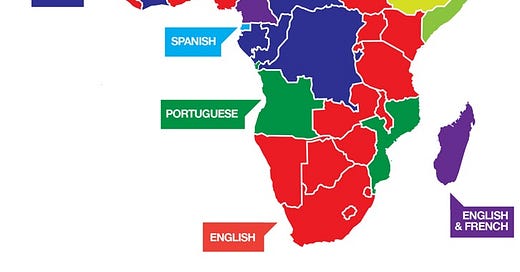


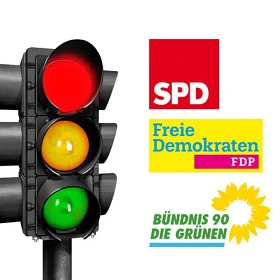
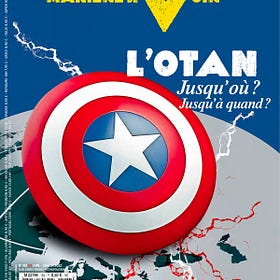








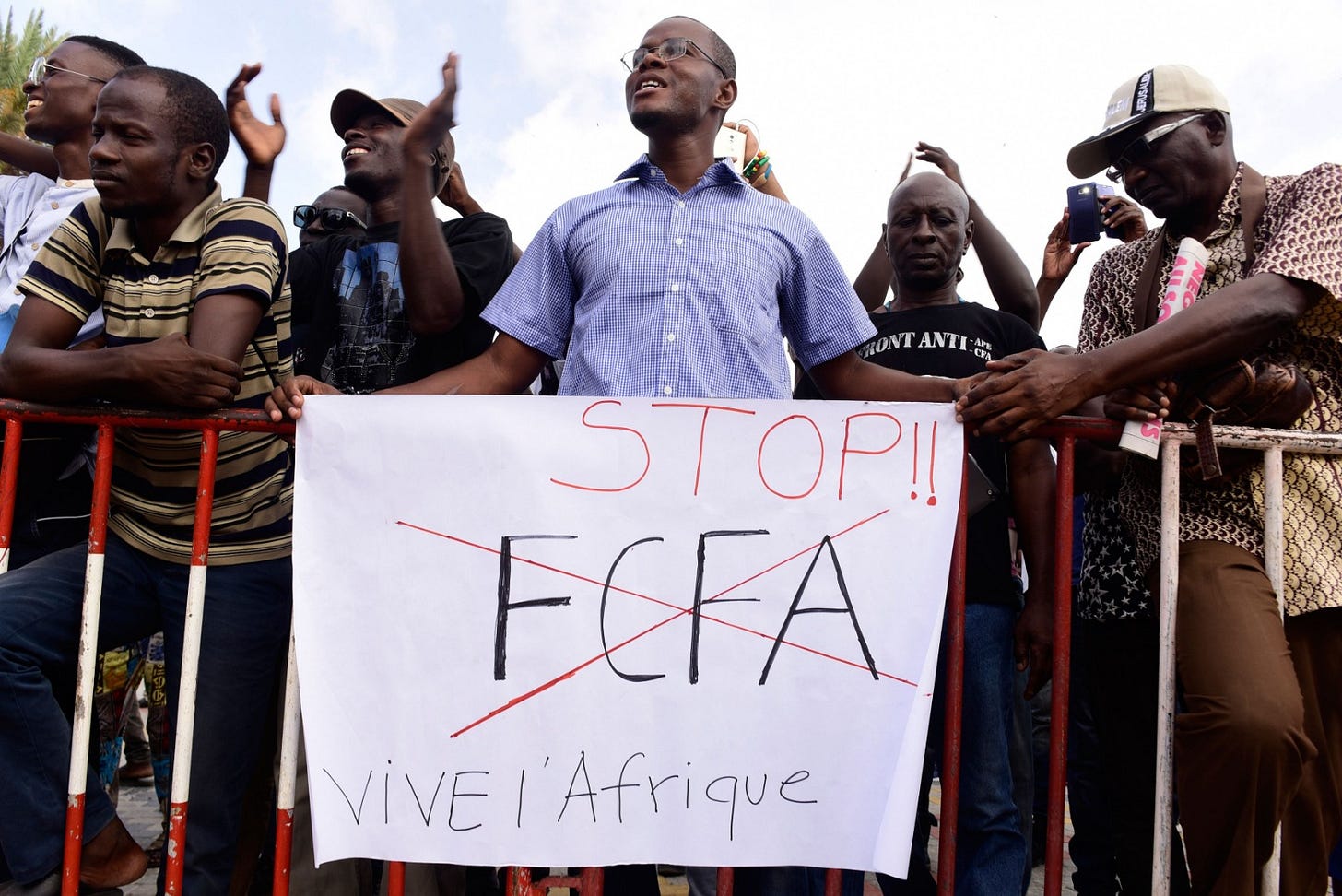
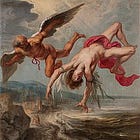
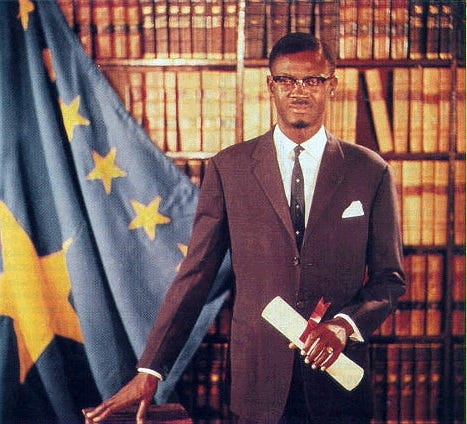
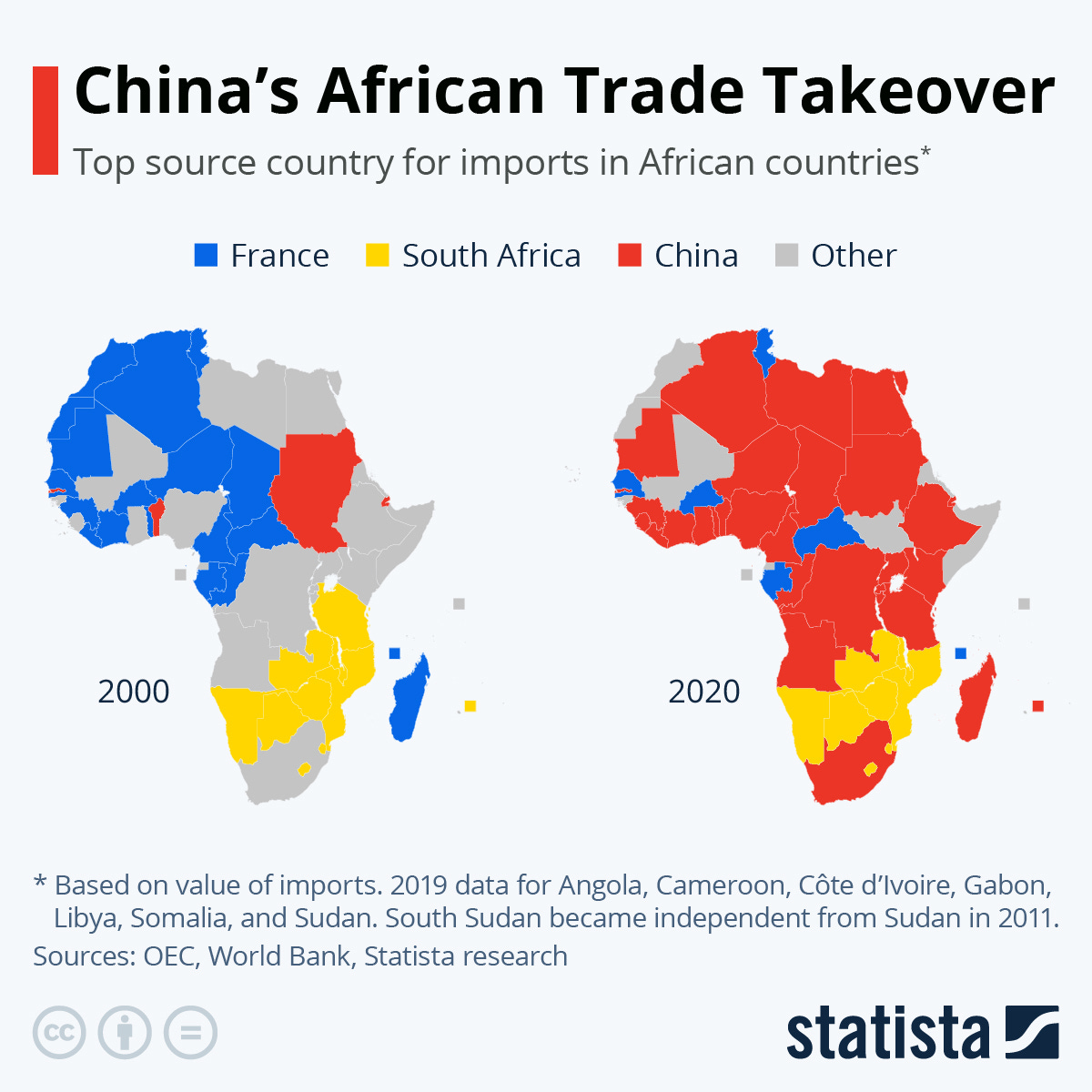

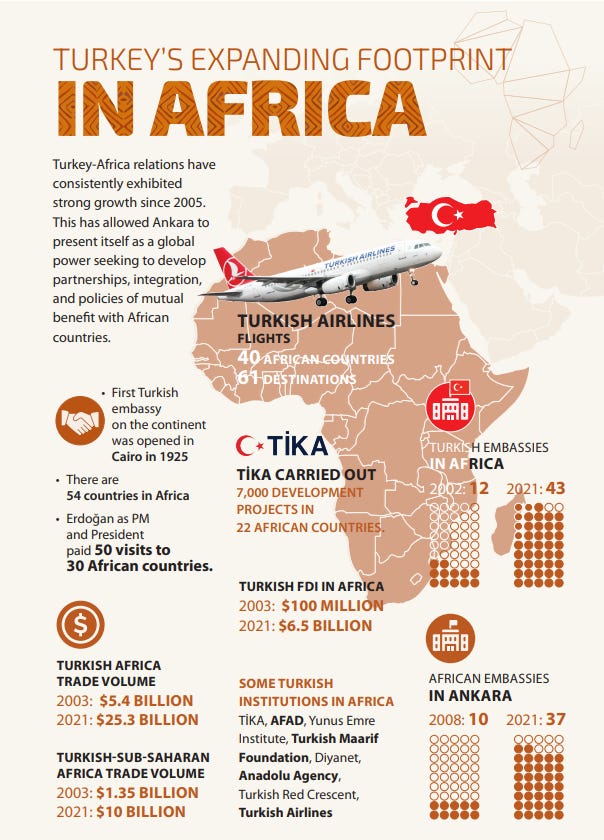
Interesting piece. I like it a lot and people who don't know much about Africa will learn a lot from your piece. However, I have a few quibbles. I think my biggest issue is that I didn't see much perspective of specific African leaders. But I will break down my quibbles one by one. I'm a Ghanaian-American myself and traveled to a bunch of African countries.
Here's part one of my critique:
1. "Africa has had colonizers since the ancient times" - Sure pieces of Africa has had colonizers since ancient times like the Roman conquest of North Africa, but it certainly didn't apply to the whole continent. The Aksum empire of Ethiopia during ancient times conquered Yemen. West Africa has historically had the (Ghana, Mali, Songhay,), the Sahel had Kanem Bornu, and etc. There have been plenty of autonomous African states that were free until the Portuguese or Arabs (as you correctly said!), but even when Europeans started coming in the 15th century there were still autonomous states.
2. "These states failed and spiralled into corruption, civil war, armed revolution, looting, mafia-state type governance and all the consequences that come with it. Since then nothing has been done to help Africa sustainably and with enough resolve. In fact, I argue in this essay that no one is actually trying to help Africa but only extract value from the continent while leaving it more impoverished." -- My problem with people who never been to African countries or never looked at the history of each country, falls in the same trap of just lumping African history as a whole and completely remove all agency from each African leader.
3. When it comes to Gaddafi and Libya. You leave out that the Arab League and African Union condemned Gaddafi AND supported the "no-fly zone". In fact the African Union explicitly said that they support a "no-fly-zone" because they didn't support a total occupation of the country.
African Union & Arab League supporting the "no-fly zone". The African Union was represented by Nigeria, Gabon, and South Africa. : https://www.vanguardngr.com/2011/03/libya-nigeria-votes-in-favour-of-no-fly-resolution/
You article suggests that it was just the West that unilaterally backed the rebels, when NATO had support from the Arab League and African Union. In fact UAE and Qatar both intervened as well. But of course I agree with you that the current shitshow demonstrates how terrible the aftermath was.
3b. "Many African left-wing intellectuals say that the West didn't want a unitied Africa" that's true. However, most African leaders had no intention at all of unifying with Libya. You should check the egos of some of these leaders. They would take Gaddafi's money but they wouldn't align with him geopolitically. Hence why countries like South Africa, Nigeria, and the AU condemned him. Gaddafi also tried unifying with Morocco, Tunisia, Algeria, Sudan, and Egypt many times and they all backed off.
Here's a list of all the attempted unifications he tried:
https://en.wikipedia.org/wiki/Federation_of_Arab_Republics#:~:text='Union%20of%20Arab%20Republics'),specific%20terms%20of%20the%20merger.
Africa isn't unified because of Western intervention it is mainly due to the will of African countries.
There was a movement where Africa tried to unify after independence in the 1960s.
There were three groups: the Casablanca group that wanted a Pan-African state (Morocco, Libya, Ghana, Mali, Guinea).
The Monrovia Group that wanted a gradualist approach to unification (Nigeria, Liberia, Ethiopia)
The Brazzaville Group that was full of French countries that didn't even want to be independent. Felix Houphet Boigny of Ivory Coast and Gabon's Leon M'ba most famously tried to stay as overseas territories of France.
The Monrovia Group and Brazzaville Group teamed up and stopped the idea of a Unified Africa on the onset, creating the gradualist institution the Organization of African Unity, which later became the African Union in the early 2000s (funded by Gaddafi!)
https://www.sahistory.org.za/article/organisation-african-unity-oau
3C: You are correct that Saddam Hussein didn't have any WMDs. But when it comes to Libya, Gaddafi initially did want a nuclear weapon. That's why he tried to annex the Aouzou Strip in Chad, and he did manage to start to try to enrich Uranium. In fact, when he was tired of being sanctioned, so he let the West come in to dismantle his nuclear plant in order to get the sanctions removed. Bush, Tony Blaire, and Gaddafi reached a deal in 2003, for the West to dismantle his enriched uranium out of Libya. UN inspectors went into Gaddafi's labs and got rid of it.
Here's some sources if you want to see
https://www.economist.com/news/2003/12/29/qaddafi-comes-clean
https://www.theguardian.com/world/2003/dec/30/libya.brianwhitaker